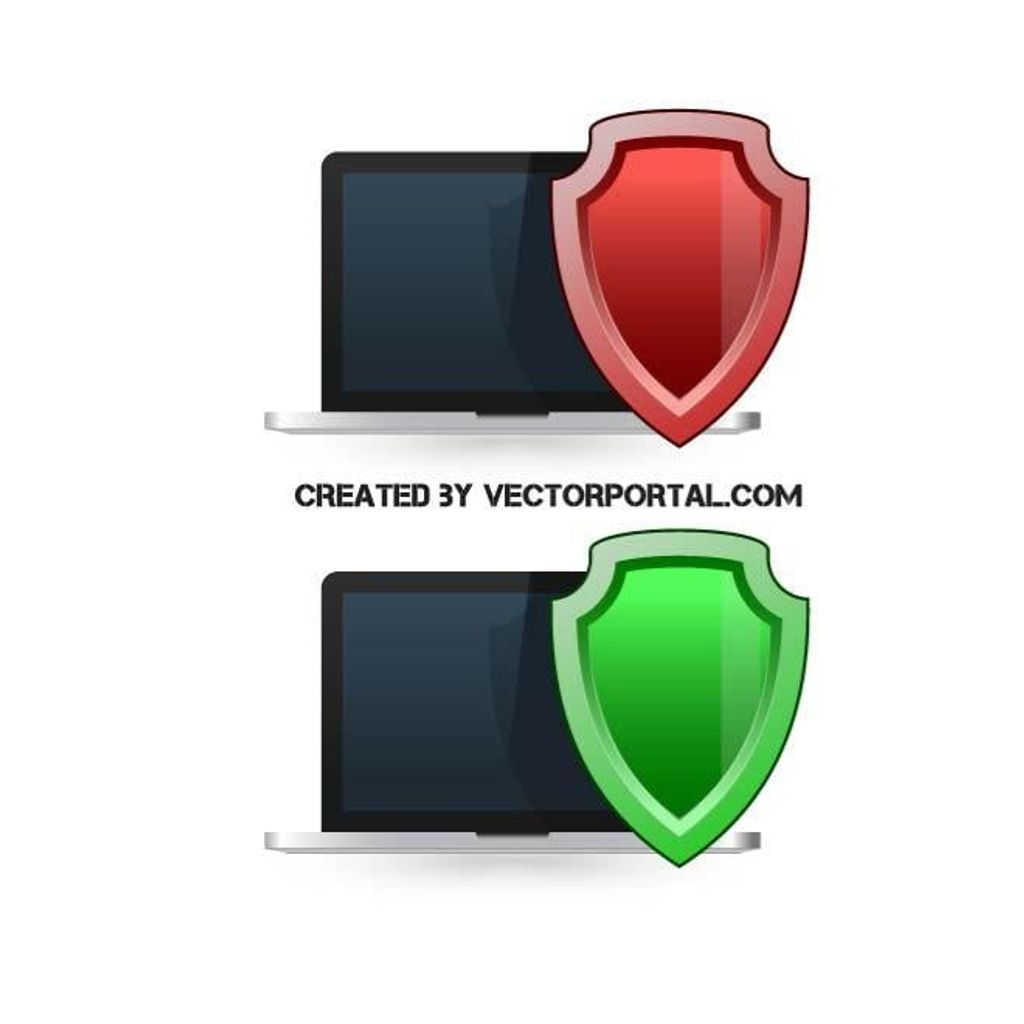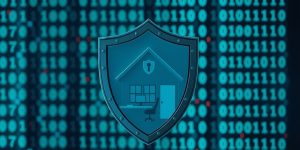In today’s digital age, cybersecurity is a paramount concern, especially for small businesses. With the increasing integration of technology into our daily lives, small enterprises are becoming attractive targets for cybercriminals. This article explores the importance of cybersecurity for small businesses and provides key takeaways to help them strengthen their defenses.
Key Takeaways
- Small businesses are attractive targets for cybercriminals due to vulnerabilities in their networks and systems.
- Implementing robust security measures and creating a culture of security awareness are essential for building a strong cybersecurity foundation.
- Endpoint protection, firewalls, and secure web gateways are key cybersecurity solutions for small businesses.
- Developing an incident response plan is crucial for effectively handling cybersecurity incidents.
- Regular testing and updating of the incident response plan is necessary to ensure its effectiveness.
Understanding the Threat Landscape
Emerging Cybersecurity Risks
The threat landscape for small enterprises is constantly evolving, with emerging cybersecurity risks posing significant challenges. One such risk is the growing availability of ransomware as a service and other as-a-service malware, which has made it easier for attackers to strike. Attackers are also leveraging AI to their advantage, making it harder to detect and combat their malicious activities. Additionally, new trends in malware development are making it faster to create and more sophisticated in evading traditional security measures.
To illustrate the severity of these risks, the Google Cloud’s "Cybersecurity Forecast 2024" report highlights the increasing use of AI by attackers and the challenges it presents. Government regulations and industry requirements further emphasize the need for small enterprises to prioritize cybersecurity measures.
To effectively address these emerging risks, small enterprises must implement robust security measures, create a culture of security awareness, and secure their network infrastructure. By staying informed about the evolving threat landscape and investing in the right cybersecurity solutions, small enterprises can mitigate the risks and protect their valuable assets.
Common Cyber Attacks
Small businesses face various types of cybersecurity threats, including:
- Phishing attacks: Cybercriminals trick employees into clicking on malicious links, giving away sensitive information, or downloading malware into the company’s network.
- Ransomware: Hackers encrypt sensitive data and demand a ransom to restore access.
- Supply chain attacks: Criminals exploit third-party vendors and suppliers to infiltrate and compromise the target organisation’s system.
These attacks can have catastrophic consequences for small businesses, resulting in financial losses, lawsuits, and damage to their reputation. It is crucial for small enterprises to implement robust cybersecurity measures to protect against these threats.
Impact of Cybersecurity Breaches
A data breach or security incident can have severe consequences for small enterprises. Here are some key impacts:
-
Damage: A data breach or security incident can shatter customer trust and confidence. Rebuilding a tarnished reputation can be a daunting task that affects long-term business viability.
-
Operational Disruption: Cyber attacks often result in operational downtime, disrupting business continuity and impacting productivity. This downtime translates into lost revenue and customer dissatisfaction.
-
Financial Losses: The cost of a cyber attack extends far beyond immediate financial losses. It includes expenses related to data recovery, system restoration, legal fees, and potential fines due to non-compliance.
It is crucial for small enterprises to prioritize cybersecurity and implement robust security measures to mitigate these risks.
Building a Strong Cybersecurity Foundation
Implementing Robust Security Measures
Implementing robust security measures is crucial for small enterprises to protect their sensitive data and prevent cyber attacks. There are several key steps that businesses can take to enhance their security posture:
- Deploy robust security solutions such as firewalls, antivirus software, encryption, multi-factor authentication, and regular software updates.
- Establish data backup protocols and recovery plans to minimize the impact of a potential breach.
- Partner with cybersecurity experts and managed IT service providers to leverage their expertise and resources.
By implementing these measures, small enterprises can significantly reduce the risk of cyber threats and safeguard their valuable information.
Creating a Culture of Security Awareness
Developing an internal culture that emphasizes cybersecurity is a must. All stakeholders should know and understand what their responsibilities are from a cybersecurity perspective because security should be everybody’s job. Implementing a comprehensive cybersecurity awareness and training program is crucial to foster a cybersecurity culture. All employees and relevant stakeholders should be trained on the importance of cybersecurity and the particular policies and procedures adopted by the organization.
To further strengthen the culture of security awareness, it is recommended to create cybersecurity champions throughout the organization. These individuals can evangelize the importance of following security policies and procedures, ensuring that everyone remains vigilant and proactive in protecting sensitive information.
Continuous improvement is key in cybersecurity. Every day should be about striving for better security practices and staying updated with the latest threats and vulnerabilities. By focusing on improving cybersecurity performance over time, organizations can enhance their overall security posture and effectively mitigate risks.
Educating employees about best security practices and ethical standards is essential. Training them on phishing awareness, password hygiene, and data handling helps cultivate a vigilant workforce capable of recognizing and preventing social engineering attacks. Additionally, promoting awareness of security protocols strengthens protection against insider threats and unintended vulnerabilities. Equipped with knowledge and skills, employees contribute to a culture of security, fostering a proactive stance in identifying and reporting potential risks. Well-trained personnel also play a crucial role in incident response, minimizing the impact of cybersecurity incidents.
Securing Network Infrastructure
Keep networks, devices, and software current and up to date. Use anti-virus and malware scanning solutions that continuously monitor. Back up data regularly and verify data backups are complete and secured. Create a rapid response and recovery plan that can be implemented quickly in the event of an attack. Implement security across networks and devices. Use MFA (multi-factor authentication). Ensure all ports are secured, don’t leave any open TCP ports that can be accessed externally. Protect and secure all connected endpoints, APIs, and data in transit and at rest. Leverage the use of permissions to limit unnecessary access to system infrastructure. Employee education and training in cyber security needs to be ongoing and mandatory.
Choosing the Right Cybersecurity Solutions
Endpoint Protection and Antivirus Software
Implementing strong endpoint protection and antivirus software is crucial for safeguarding your small enterprise against cyber threats. By using anti-virus and malware scanning solutions that continuously monitor your network and devices, you can detect and prevent malicious activities. Additionally, ensure that all ports are secured and no open TCP ports can be accessed externally. Protect and secure all connected endpoints, APIs, and data in transit and at rest. Implementing multi-factor authentication (MFA) adds an extra layer of security by requiring users to provide multiple forms of identification. Regularly updating your software and conducting vulnerability assessments are also essential to keep your systems up to date and protected. Remember to back up your data regularly and verify that the backups are complete and secured. In the event of an attack, having a rapid response and recovery plan in place will enable you to quickly mitigate the impact and restore normal operations.
Firewalls and Intrusion Detection Systems
Implement security across networks and devices. Use MFA (multi-factor authentication). Ensure all ports are secured, don’t leave any open TCP ports that can be accessed externally. Protect and secure all connected endpoints, APIs, and data in transit and at rest. Leverage the use of permissions to limit unnecessary access to system infrastructure.
- Keep networks, devices, and software current and up to date.
- Use anti-virus and malware scanning solutions that continuously monitor.
- Back up data regularly and verify data backups are complete and secured.
- Create a rapid response and recovery plan that can be implemented quickly in the event of an attack.
Secure Web Gateways
Secure web gateways are an essential component of a comprehensive cybersecurity strategy for small enterprises. These gateways act as a protective barrier between the internal network and the internet, filtering and monitoring web traffic to prevent malicious activities. By inspecting incoming and outgoing web traffic, secure web gateways can detect and block potential threats such as malware, phishing attempts, and unauthorized access attempts.
To effectively implement secure web gateways, small enterprises should consider the following:
- Choosing a reputable web gateway solution that offers advanced threat detection capabilities and regular updates to stay ahead of emerging threats.
- Configuring granular policies to control web access and block access to high-risk websites or categories.
- Enforcing encryption to protect sensitive data transmitted over the web.
By deploying secure web gateways, small enterprises can significantly enhance their cybersecurity posture and mitigate the risk of web-based attacks.
Developing an Incident Response Plan
Identifying and Assessing Cybersecurity Incidents
A comprehensive cybersecurity risk assessment is crucial in identifying vulnerabilities and potential threats. This assessment allows organizations to develop a tailored security strategy that addresses their specific needs. Additionally, it is important to establish protocols for incident response, including a clear process for identifying and assessing cybersecurity incidents. This ensures that any potential breaches or attacks are promptly detected and mitigated. Regular testing and practice of the incident response plan by both the security team and business units is essential to ensure its effectiveness. By prioritizing incident identification and assessment, organizations can effectively protect themselves from cyberthreats and minimize the impact of any potential breaches.
Establishing a Response Team
When establishing a response team for cybersecurity incidents, it is crucial to prepare a core team and train them in advance to effectively manage security incidents. Core team members should be trained on decision rights, response preparation, known constraints, procedures for managing business continuity, and documenting critical assets. Additionally, testing the disaster recovery response plan is essential to determine the time required to restore normal business operations. It is important to designate team members for contacting the FBI and insurance providers, as well as working with the US Department of the Treasury in the event of a ransom payment. Verification of the authenticity of the attack and the risk to business data is vital, and it is advisable to have alternative strategies in place for data recovery and system security. Finally, clear decision rights and response preparation procedures are essential for effective incident management.
Testing and Updating the Plan
Regularly updating software is crucial for enhancing software security. Updates often include patches for known vulnerabilities, strengthening defenses against cyber threats. By staying current, you prevent hackers who exploit outdated code. These updates bolster firewall strength, encryption, and access controls, reducing the risk of breaches and data leaks. Continuous updates also show commitment to security, fostering user trust.
Team Training and Education
It is said that “security is only as strong as your weakest link”. Therefore, it is important to familiarize your employees with best security practices and ethical standards. Educating your staff about phishing, password hygiene, and data handling cultivates a vigilant workforce.
Developing an Incident Response Plan is crucial for any business website. In today’s digital world, where cyber threats are constantly evolving, it is essential to have a well-defined plan in place to effectively respond to security incidents. An incident response plan outlines the steps and procedures to be followed in the event of a security breach or cyber attack. It helps minimize the impact of the incident, reduce downtime, and protect sensitive data. At Business Website Security, we understand the importance of securing your digital world. Our team of experts can help you develop a customized incident response plan tailored to your specific needs. Contact us today to ensure the safety and resilience of your online presence.
Conclusion
In today’s digital landscape, cybersecurity is not a luxury but a necessity for small businesses. The new year presents an opportunity for small business owners to prioritize cybersecurity and fortify their defenses against evolving threats. By taking proactive steps and partnering with cybersecurity experts, small businesses can protect their valuable assets, ensure regulatory compliance, preserve business continuity, and enhance customer trust—setting the stage for a successful and secure year ahead.







